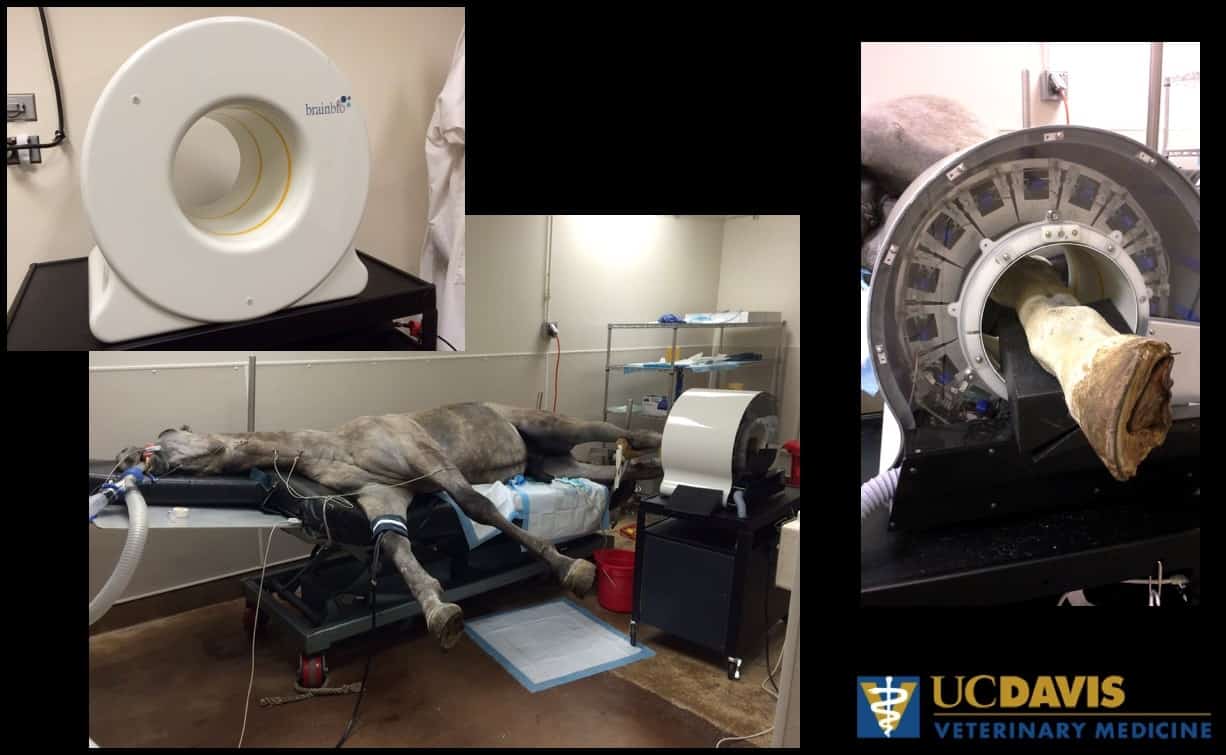UC Davis’ Equine PET Scanner Providing Results

It has been a busy past few months for the equine positron emission tomography (PET) program at the University of California, Davis (UC Davis) veterinary hospital. The newly-acquired PET scanner was delivered as planned in early August.
Through August and September, six horses were scanned to test the scanner and validate a clinical protocol. For all six horses, both PET scans and computed tomography (CT) scans were performed under the same anesthetic procedure, instead of two separate anesthesias as with the initial cases last year tested on a prototype of the scanner. The anesthesia time remained under three hours with approximately 90 minutes for the PET scan and 30 minutes for the CT scan. During this time, veterinarians imaged as many as six different areas (for example, both front feet, both front fetlocks, and both carpi, or knees).
The six horses enrolled were all racehorses recently retired from the track or currently training on a treadmill at the California Animal Health and Food Safety Laboratory. All these horses were imaged not only with PET and CT, but also with MRI and scintigraphy. Stress remodeling lesions were documented, particularly in the fetlock and the carpus. Several of these lesions were not apparent on scintigraphy, CT, or MRI. The pattern of uptake observed on the PET images matches areas of known occurrence of lesions; PET appears to be the most sensitive technique to detect these lesions. Further research is planned on the Thoroughbred fetlock, as UC Davis veterinarians believe PET could hold the potential to help prevent catastrophic injuries in racehorses
Create a free account with TheHorse.com to view this content.
TheHorse.com is home to thousands of free articles about horse health care. In order to access some of our exclusive free content, you must be signed into TheHorse.com.
Start your free account today!
Already have an account?
and continue reading.
Written by:
Edited Press Release
Related Articles
Stay on top of the most recent Horse Health news with












